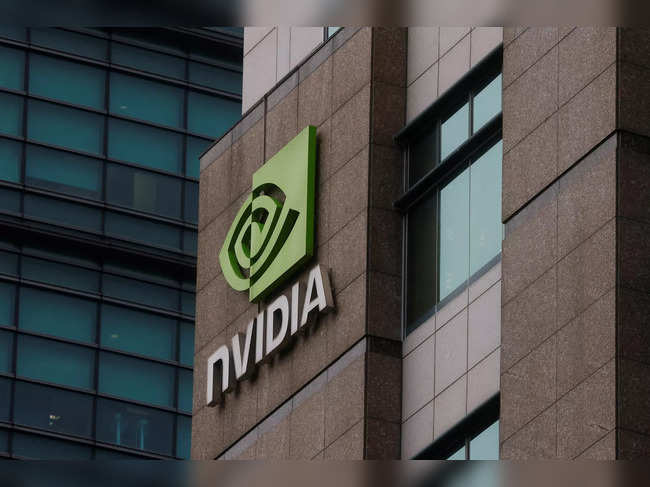 Reuters
ReutersHaving already surpassed storied titans Intel Corp. and Advanced Micro Devices Inc., the company’s market capitalisation touched $1 trillion last week. Graphics didn’t get it there, though.
Chips used to render graphics propped up the company’s revenue for years as its other category, computing and networking, got a boost from areas like cryptocurrency mining. Then the graphics segment dipped sharply while number-crunching took up the slack.
The company’s graphics chips are mainly used for gaming, alongside professional applications such as 3D design. But an increasing number of its chips are being installed in data centres to help companies like Microsoft Corp., Alphabet Inc., OpenAI, and Amazon.com Inc. build their AI capabilities and offer those services to clients.
Last year’s release of ChatGPT ignited a frenzy of interest in generative artificial intelligence — AI that creates content instead of just analyzing information. Nvidia’s leadership position caught the attention of investors, who returned to the stock after getting cold feet following a massive rally in 2021.
Discover the stories of your interest

One way to assess a company’s technological prowess is to see how much pricing power it has with customers. That can be measured by looking at gross margin — the markup it makes atop the cost of building the product. Intel Corp.’s heyday was during the PC and laptop eras. Today Nvidia holds the crown, with the high profits on AI chips and computers driving it to record profitability.
The world’s top technology names don’t want to miss the AI boat, but to make their mark they need to spend billions of dollars on expensive and specialised servers. Nvidia is the primary choice, which means that massive capital expenditure budgets are likely to flow through to the chipmaker, even more so now that much of Silicon Valley has axed thousands of jobs and pledged to replace many roles with AI.
How long, and how high, Nvidia rises will depend a lot on how major corporations and mass consumers adopt and adapt to the AI boom. It will also need to remain ahead of rivals like Intel and AMD who are keen to steal more of the pie, while clients like Amazon.com Inc. are also branching out into semiconductor development. The once upstart graphics chipmaker may hold the crown today, but in the world of artificial intelligence, nothing is guaranteed.
(The author of the article is Bloomberg's Tim Culpan. Views expressed are his own)
















 Get Unlimited Access to The Economic Times
Get Unlimited Access to The Economic Times
